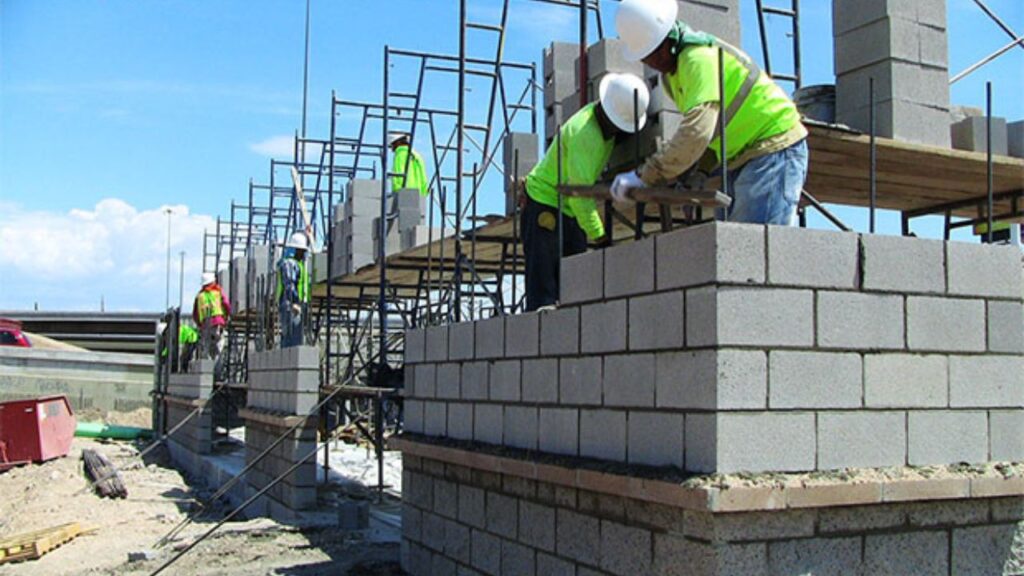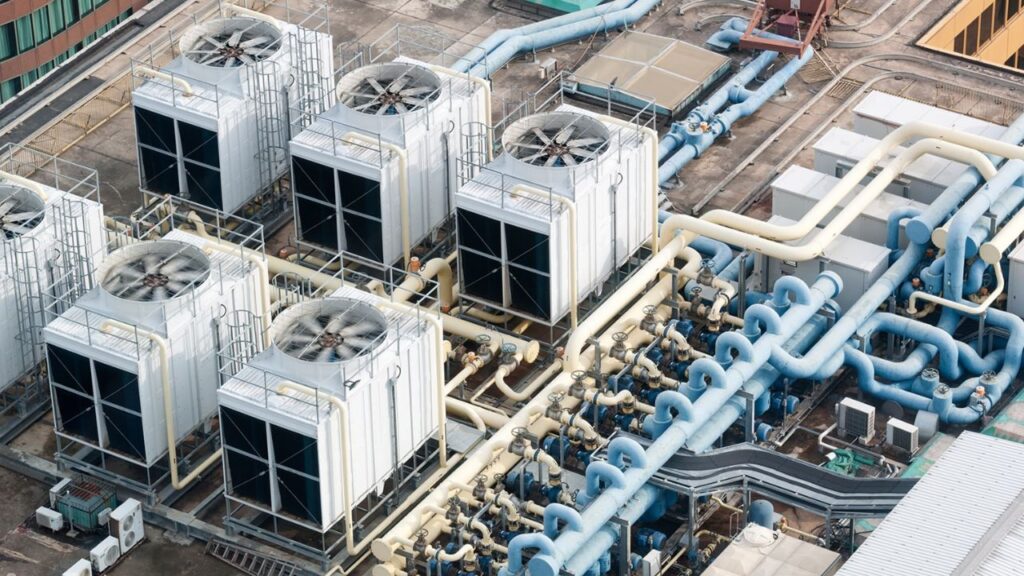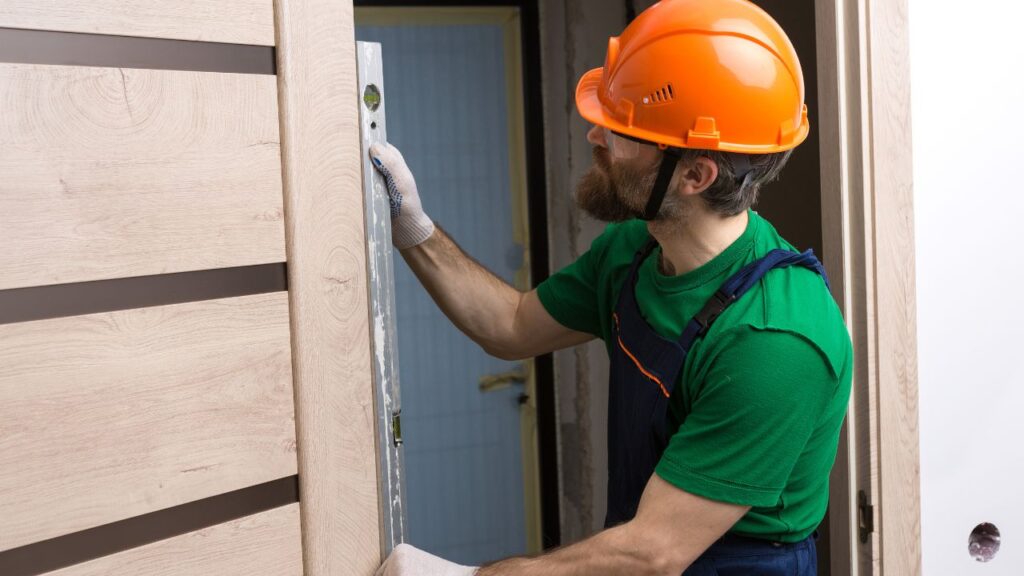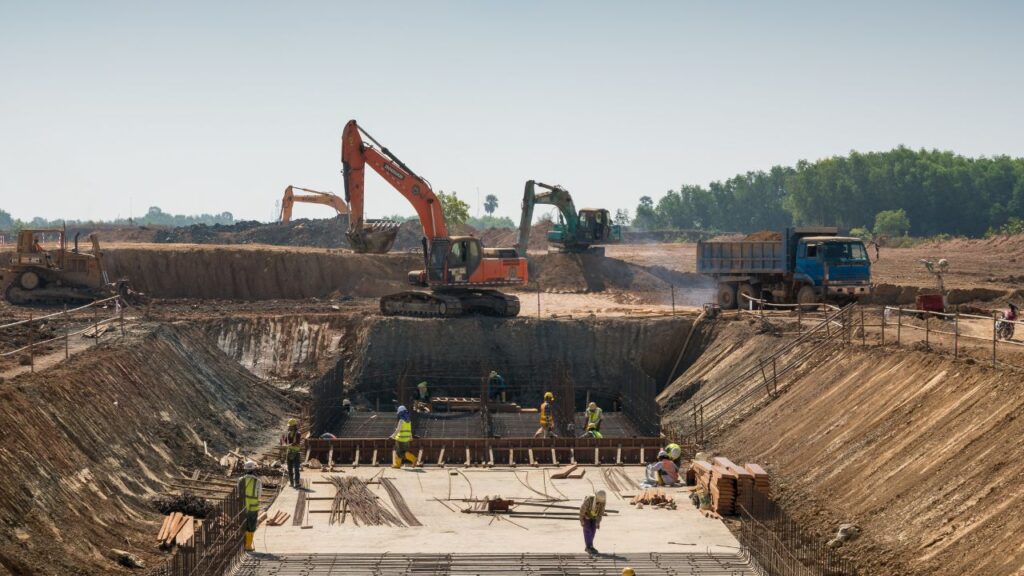- Homepage
- Blog
Types of Electrical Wiring in Commercial Buildings
Leading provider of electrical estimating.
Commercial electrical wiring is necessary in any commercial building and residential building including those that are low- or high-rise. The right type of commercial lighting wire is critical to the functionality of the business. To make sure you have everything needed. Estimate Florida Consulting offer a complete commercial electrical different types of electrical wiring, each appropriate for various applications.
Electrical wiring is a bit different in commercial buildings than it is in residential ones. Office equipment, machinery, and electronics may require different wiring and cable organization than heavy-duty machinery or warehouses.
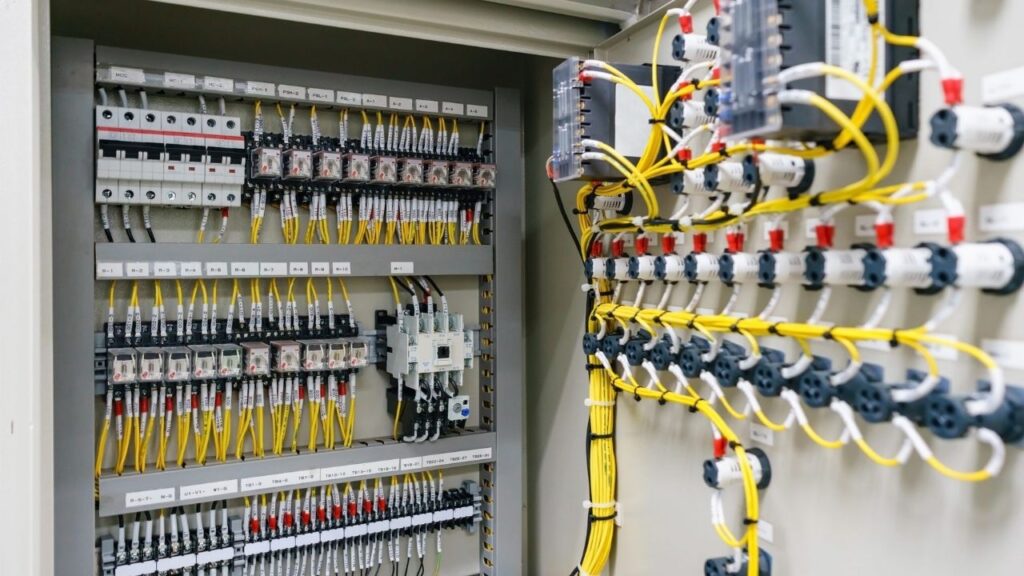
In addition to the electricity needs and uses, there are other considerations to take into account when it comes to commercial wiring. One of the most important considerations is safety, as any irregularities in the electrical wiring can put employees at risk and stop business operations. Any commercial building with extensive electrical wiring should have its functionality checked regularly by an expert; it’s the only way to ensure the safety of everyone.
In the following article, you will discover the three main types of electrical wiring method in commercial buildings and their specific advantages.
Why Wiring Matters in Florida’s Commercial Buildings?
Florida’s humid climate, frequent storms, and stringent electrical codes demand wiring durability factors that ensure safety and performance. At Estimate Florida Consulting, we specialize in professional wiring services, offering expertise on Florida wiring challenges like corrosion resistance and hurricane-proofing. Proper wiring supports heavy-duty commercial wiring needs, reduces maintenance, and aligns with Florida wiring trends 2025—let’s break down the top options.
Get Acquainted with Estimation
Avoid These Top 5 Construction Estimating Mistakes
How to Stay Profitable by Managing Subcontractor Costs Effectively?
Top 3 Types of Electrical Wiring for Commercial Buildings
Here are the three most popular wiring types for commercial buildings in Florida, based on durability, cost, and suitability:
1. Copper Wiring (THHN/THWN)
- Overview: Copper wiring, often in THHN (Thermoplastic High Heat-resistant Nylon-coated) or THWN (Thermoplastic Heat and Water-resistant Nylon-coated) forms, is the go-to choice for commercial applications. Its superior conductivity and flexibility make it ideal for high-capacity wiring systems.
- Why It’s Top: Copper resists corrosion—a must in Florida’s salty, humid air—and handles heavy electrical loads efficiently. It’s perfect for offices, retail stores, and industrial spaces needing commercial wiring benefits like reliability.
- Cost in 2025: Wiring cost per foot ranges from $2-$6, with installation adding $1-$3 per foot by Florida commercial electricians. For a 10,000-square-foot building, expect $20,000-$60,000 in materials alone.
- Best For: High-traffic areas like Miami strip malls requiring custom commercial wiring designs.
2. Aluminum Wiring (AA-8000 Series)
- Overview: Aluminum wiring, specifically the AA-8000 series, is a lightweight, cost-effective alternative to copper. It’s commonly used in larger commercial buildings where long runs reduce material costs.
- Why It’s Top: It’s 40-50% cheaper than copper and lighter, easing installation in sprawling spaces. Modern alloys improve safety over older aluminum, addressing past concerns like oxidation.
- Cost in 2025: Wiring cost per foot is $0.50-$1.50, with installation at $1-$2 per foot. A 50,000-square-foot warehouse might cost $25,000-$75,000 in materials.
- Best For: Budget-focused projects like Jacksonville warehouses needing affordable wiring solutions.
3. Metal-Clad (MC) Cable
- Overview: Metal-Clad (MC) cable features copper or aluminum conductors wrapped in a flexible metal sheath, offering protection and versatility. It’s pre-assembled, speeding up installs.
- Why It’s Top: The metal armor shields against physical damage and meets fire codes, ideal for heavy-duty commercial wiring in exposed areas. It’s also moisture-resistant, suiting Florida’s climate.
- Cost in 2025: Commercial wiring installation costs range from $3-$8 per foot installed, due to the sheathing. A 2,000-square-foot Sarasota shop might cost $6,000-$16,000.
- Best For: Smaller commercial spaces or retrofits requiring commercial electrical upgrades.
- Residential And Commercial Electrical Services
- Electrical Wiring Installation
- Electrical Panel Upgrades
- Electrical System Upgrades
- Generator Installation Services
- Electrical Repair And Maintenance
Comparing Wiring Types: Which Fits Your Project?
- Copper (THHN/THWN): High cost, top performance, best for durability and conductivity (wiring durability factors).
- Aluminum (AA-8000): Lower cost, lighter weight, ideal for large-scale, cost-sensitive builds (affordable wiring solutions).
- MC Cable: Mid-range cost, added protection, suits flexibility and safety needs (commercial wiring benefits).
Need help choosing? Contact us for a tailored commercial wiring costs estimate!
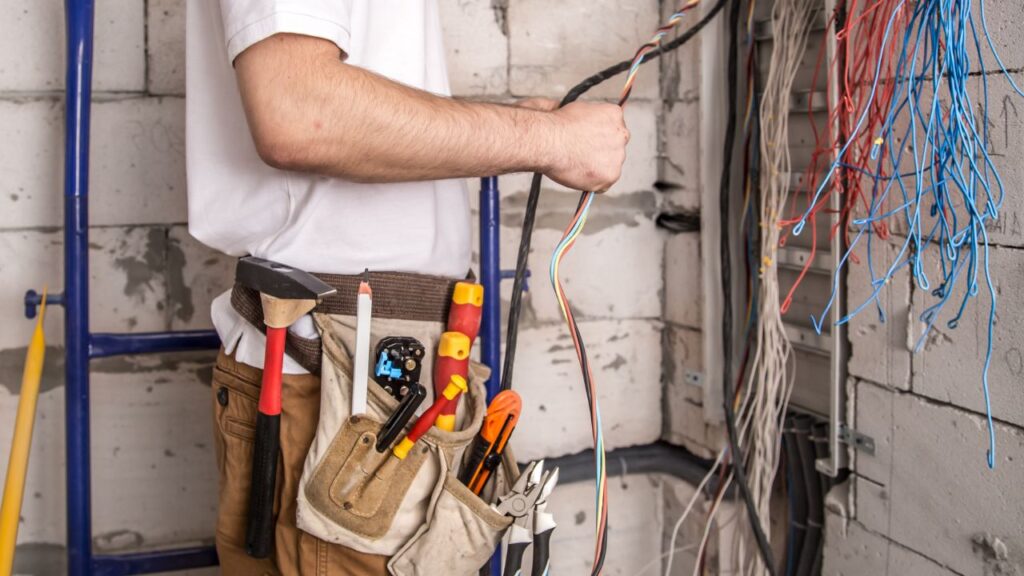
Commercial Wiring Benefits in Florida
Quality wiring offers:
- Reliability: Wiring durability factors ensure uptime in humid, stormy conditions.
- Safety: Meets Florida wiring challenges like NEC and hurricane codes.
- Efficiency: Reduces energy costs with modern systems.
- Scalability: Supports high-capacity wiring systems for growth.
Permitting and Florida-Specific Factors
Florida’s regulations impact wiring:
- Permits: $100-$1,000, varying by county (e.g., higher in Miami).
- Inspections: $50-$200/visit, often 2-3 needed for Florida wiring challenges.
- Code Requirements: GFCI outlets ($20-$50 each) and surge protection ($300-$1,500) add $1,000-$5,000.
DIY Commercial Wiring Tips
For DIY commercial wiring tips:
- Plan Runs: Map wiring paths, adding 10-20% for slack.
- Material Selection: Compare commercial wiring options like copper vs. aluminum.
- Code Research: Study Florida’s NEC updates for compliance.
90% More Changes to Win Electrical Project Bids With Our Estimate
Take the First Step to Your New Electrical Bid Win – Just Upload Plans!
Cost to Wire a 1,000 Sq.Ft. House
The average cost to wire a 1,000 sq.ft. home is $5,000 to $7,000. This includes the rough wiring before the walls are installed. Once the walls are in, these costs incorporate the finish installation of outlets, switches, and readying for light fixtures and appliances. Costs include the materials and labor but do not include things like the light fixtures. Your costs can be higher if you need heavy wiring, such as ethernet, or have complex electrical needs.
Cost to Wire a 1,600 Sq.Ft. House
The cost to wire a 1,600 sq.ft. home is between $6,300 and $11,000. These costs are for the labor and materials used in the wiring process. They include the initial rough wiring and the finish work. This includes the installation of all outlets, switches, and rough installation of light fixtures and appliances. Costs do not include the light fixtures or appliances. If you have complex electrical needs or require heavy cabling, your costs could be higher.
Cost to Wire a 2,500 Sq.Ft. House
The cost to wire a 2,500 sq.ft. home is between $12,500 and $17,500. These costs are for the materials and labor in the project. They include the rough-in electrical work before the walls are closed. They also include the final finish work. This includes the outlet and switch installations and the wiring for lights and appliances. Costs do not include the light fixtures, appliances, or final installation.

Get Your Ebook of Top 10 Tips To Submit Better Bids
Contractors can win more bids with the right strategies of bidding. We have shared secrets for residential and commercial bids.
Cost to Rewire a House per Square Foot
Rewiring home averages $8 to $12 a square foot. These costs include removing all existing wiring and installing the new wiring. Depending on how accessible the wiring is, sometimes the walls can remain closed and only access holes need to be cut. Other times, the walls must be opened partially, and you have additional costs for the labor and repair.
Cost to Rewire a 1,000 Sq.Ft. House
The average cost to rewire a 1,000 sq.ft. home ranges from $8,000 to $12,000. This includes removing all existing wires and replacing them with new ones. Costs include labor and materials. It also usually includes replacing the home’s outlets and switches. You may also need to upgrade the wiring for light fixtures and appliances. Sometimes, these items also need replacement during the process, but the costs do not include the fixtures.
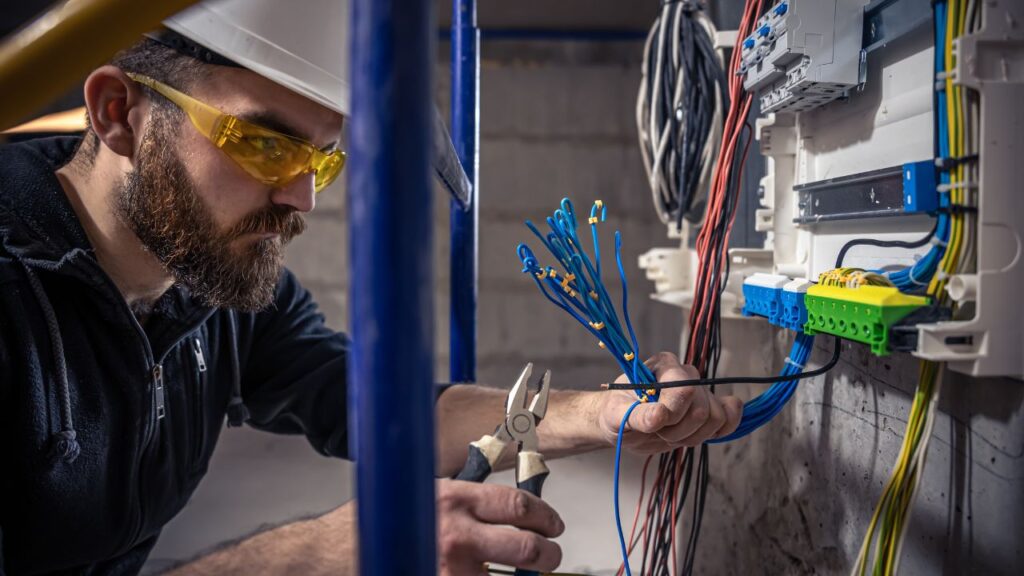
Cost to Rewire a 1,600 Sq.Ft. House
The cost to rewire a 1,600 sq.ft. home averages $12,800 to $19,200. Rewiring costs include the complete removal and replacement of all wiring. They also include the replacement of all outlets and switches. These costs include the labor and materials for this job. If your walls are hard to access, your home has complex electrical needs, or the light fixtures or appliances require replacement, your costs will be higher.
Cost to Rewire a 3,000 Sq.Ft. House
The average cost to rewire a 3,000 sq.ft. home ranges from $24,000 to $36,000. Costs include the project’s labor and materials. Rewiring a home includes the complete removal and replacement of all wiring. This also includes the replacement of all outlets and switches. Costs usually include a circuit panel upgrades. Costs may be higher or lower, depending on how hard the wiring is to access.
Conclusion
Selecting the right type of electrical wiring for commercial buildings in Florida is crucial for safety, efficiency, and long-term performance. Whether you opt for copper wiring (THHN/THWN) for its superior conductivity and durability, aluminum wiring (AA-8000 series) for its cost-effectiveness and lightweight properties, or metal-clad (MC) cable for its protective sheathing and fire resistance, the right choice depends on your project’s unique needs and budget.
At Estimate Florida Consulting, we understand the complexities of commercial electrical systems and the importance of following Florida’s stringent electrical codes and weather-related challenges. Our expertise in providing accurate electrical cost estimates ensures your project remains on budget without compromising quality or safety.
For tailored electrical cost estimating services or professional advice on commercial wiring options, reach out to Estimate Florida Consulting today. Let us help you power your commercial success with the right electrical solutions!
Frequently Asked Question
Copper wiring (THHN/THWN) is often the best choice due to its superior conductivity, durability, and resistance to Florida’s humid and salty air. However, aluminum wiring (AA-8000 series) and metal-clad (MC) cable are also popular options depending on budget and installation needs.
Wiring costs vary based on material and installation. Copper wiring costs $2-$6 per foot, aluminum wiring $0.50-$1.50 per foot, and metal-clad cable $3-$8 per foot, with installation adding $1-$3 per foot on average. Additional costs include permits, inspections, and code compliance.
Florida’s electrical codes demand features like GFCI outlets, surge protection, and hurricane-resistant wiring. Regular inspections and high-quality materials ensure safety, especially in the state’s storm-prone and humid climate.
Estimate Florida Consulting provides expert cost estimation for commercial wiring projects, ensuring accurate budgeting for materials, labor, and compliance with Florida’s stringent electrical codes. Our detailed estimates help avoid unexpected costs and delays.
Comprehensive Trade-Specific Estimates
At Estimate Florida Consulting, we offer detailed cost estimates across all major trades, ensuring no part of your project is overlooked. From the foundation to the finishing touches, our trade-specific estimates provide you with a complete and accurate breakdown of costs for any type of construction project.

Testimonials
What Our Clients Say
We take pride in delivering accurate, timely, and reliable estimates that help contractors and builders win more projects. Our clients consistently praise our attention to detail, fast turnaround times, and the positive impact our estimates have on their businesses.
Estimate Florida Consulting has helped us win more bids with their fast and accurate estimates. We trust them for every project!

Steps to Follow
Our Simple Process to Get Your Estimate
01
Upload Plans
Submit your project plans, blueprints, or relevant documents through our online form or via email.
02
Receive Quotation
We’ll review your project details and send you a quote based on your scope and requirements.
03
Confirmation
Confirm the details and finalize any adjustments to ensure the estimate meets your project needs.
04
Get Estimate
Receive your detailed, trade-specific estimate within 1-2 business days, ready for your project execution.





